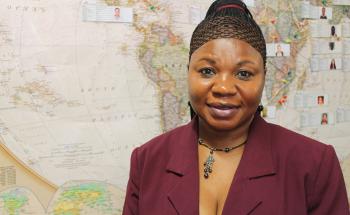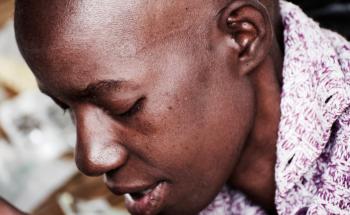
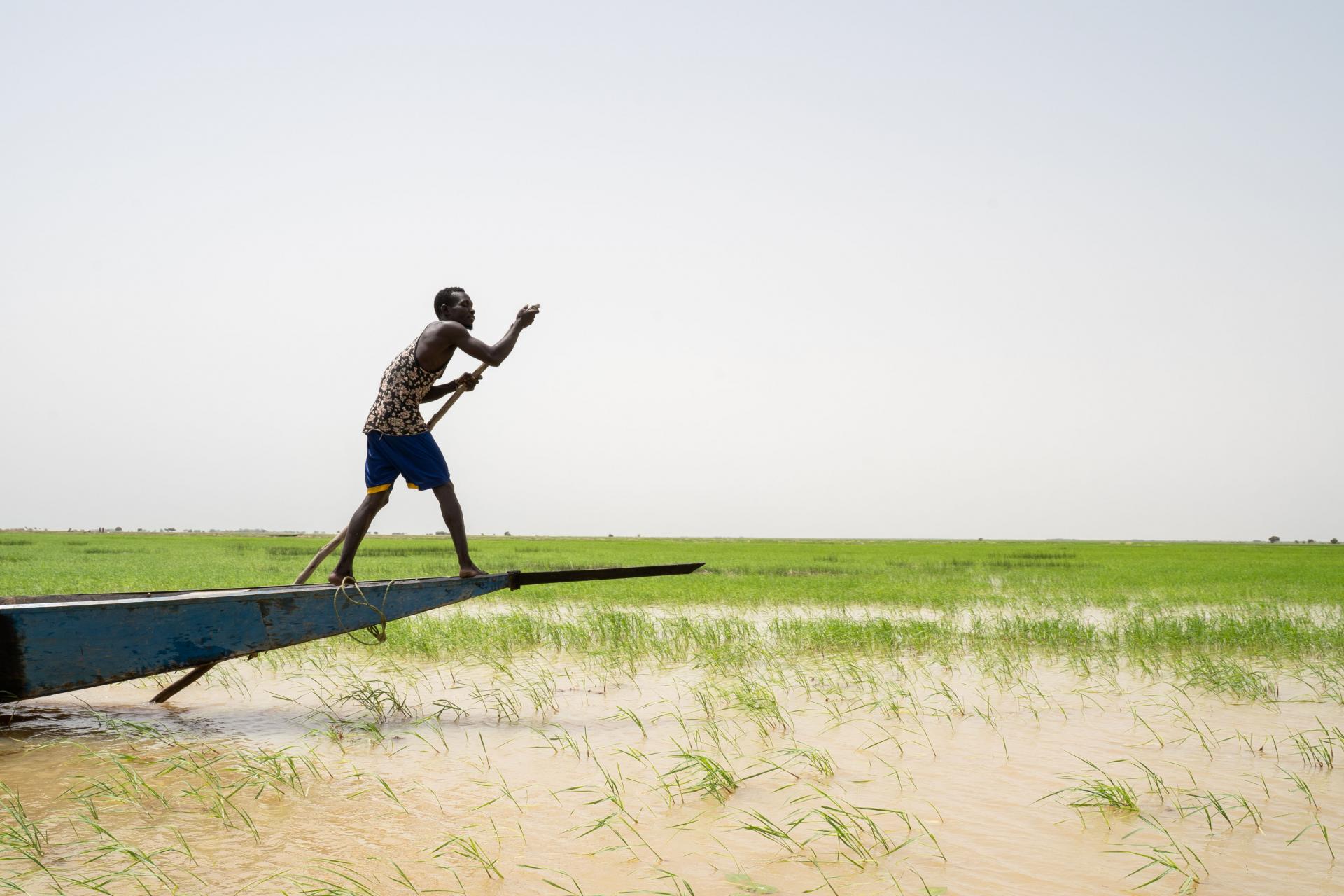
Mali
MSF works across Mali to assist the most vulnerable people. We are responding to the growing crisis in the central region, providing healthcare to nomadic communities in the north and caring for cancer patients in Bamako, the capital.
We also support nutrition and paediatric services in the southern Koutiala district.

Understanding the humanitarian crisis
Mali: Understanding the humanitarian crisis
Headlines about Mali often focus on conflict and security concerns. But these stories obscure the reality for people living through a six-year-long crisis.
With 130,000 refugees already in neighbouring countries, more than one million people inside Mali are now in urgent need of health assistance.
This short video animation explains why.
Our Activities in Mali in 2023
Data and information from the International Activity Report 2023.
1,478
1,478
€37.9 M
37.9M
1992
1992
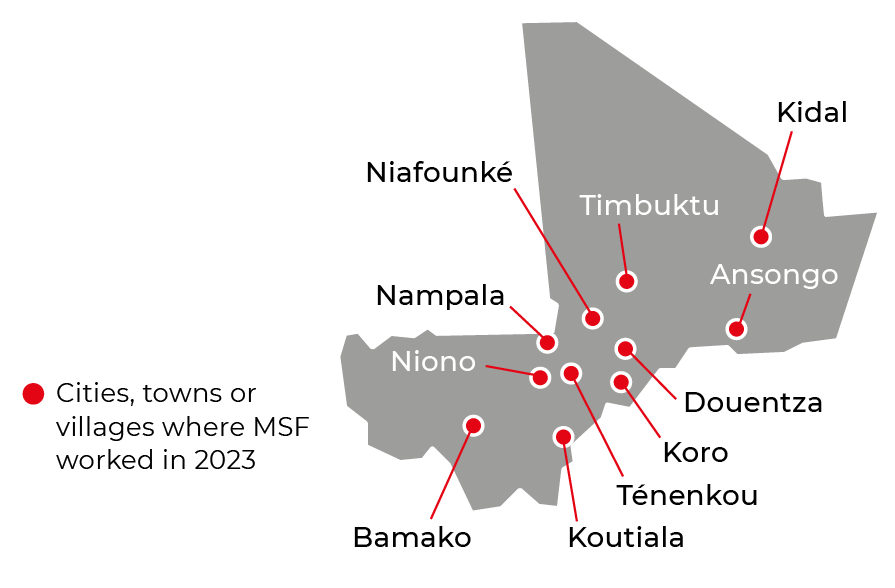
Violence against civilians intensified during the year, prompting displacement, particularly in the country's northern and central regions. Others were trapped in cities and villages by armed groups or impacted by intercommunal conflict. Violence in northeast Mali also caused movements of people, especially around Ansongo and Gao, where we continue to provide humanitarian aid and treat the wounded.
Many international humanitarian organisations withdrew from areas affected by fighting, as they were unable to gain access to people in need. Our teams remained in Koro and Douentza, in the central region of Mopti, responding to the needs of displaced people and assisting refugees from neighbouring Burkina Faso.
MSF and other NGOs were also subjected to violence during the year; staff were kidnapped and assaulted, MSF-supported health facilities were looted, and our ambulances were attacked. In November, we were forced to evacuate our teams from Kidal, Boni and Nampala due to a marked deterioration in security in these areas. Nevertheless, we continue to run medical activities and provide humanitarian aid to people in remote areas affected by the conflict.
In addition to caring for the war-wounded and responding to the needs of displaced people, our teams provided a range of medical services, including maternal and paediatric care, screening and treatment for malnutrition, mental health care, and emergency surgery across all our projects in the country.
In the capital, Bamako, we continued our project in partnership with the Ministry of Health, which focuses on providing care for women with breast or cervical cancer.
.

530,000
530,
66,000
66,
1,868
1,868
1,040
1,04

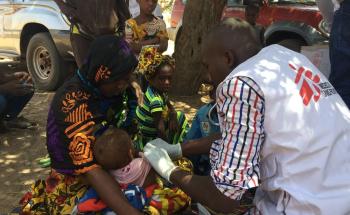
Violence in the centre of the country has reached worsened and is affecting the civilian population
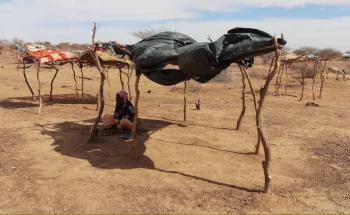
Over 8,000 people displaced by armed group on Mali border
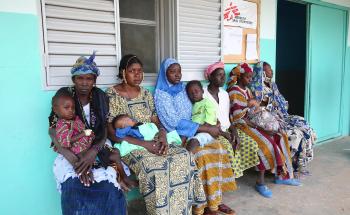
Vaccinating 10,000 children over 60,000km of desert roads

Perilous terrain: Humanitarian action at risk in Mali
